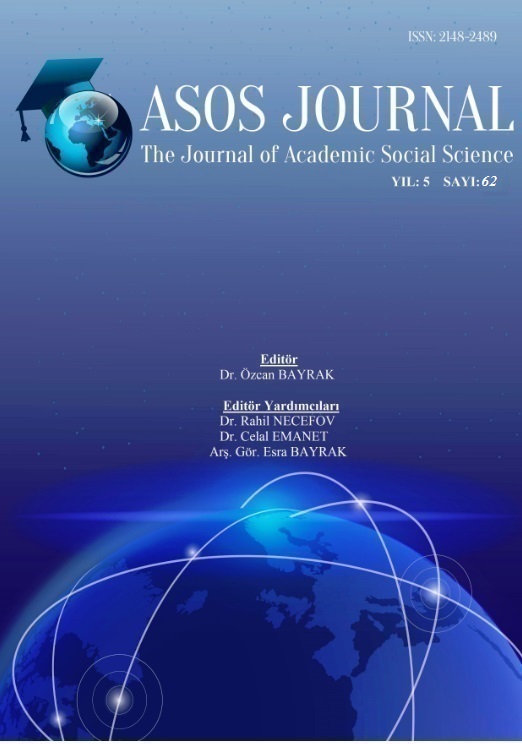Author :
Abstract
Akran zorbalığı çok faktörlü bir yapıya sahip, tüm dünyada görülen yaygın bir saldırganlık davranışıdır. Zorbalığın doğası ve nedenlerine dair çok sayıda araştırma bulunmasına rağmen, okula karşı tutumla akran zorbalığı ilişkisini inceleyen çalışma sayısı oldukça sınırlıdır. Bu çalışmanın amacı Kuzey Kıbrs Türk Cumhuriyeti (KKTC) liselerinde zorbalığın yaygınlığını tespit ederek, gençlerin okul yaşamı ve okula karşı tutumlarının akran zorbalığıyla ilişkisini incelemektir. Araştırmada ilişkisel tarama modeli kullanılmıştır. Veriler araşırmacı tarafından hazırlanan kişisel bilgi formu ve Olweus Zorba/Kurban Anketi aracılığıyla toplanmıştır. Araştırma KKTC devlet liselerinde okuyan 916 genç ile gerçekleştirilmiştir. Araştırmada öğrencilerin % 9’unun kurban, % 7’sinin zorba ve % 5’inin zorba/kurban olduğu tespit edilmiştir. Gerçekleştirilen çalışmada öğrencilerin okula karşı tutumlarıyla zorba, kurban ve zorba/kurban olma durumları arasında anlamlı bir ilişki bulunmuştur. Bulgulara göre; okulu hiç sevmeyenlerin daha çok zorba, sevenlerin ise daha az zorba oldukları belirlenmiştir.
Keywords
Abstract
Peer bullying is a common aggression behavior seen all over the world and it has a multi-factor structure. Although there is a lot of research on the nature and causes of the peer bullying, the number of studies examining attitudes towards school and peer bullying is very limited. The purpose of this study is to determine the prevalence of bullying in the Turkish Republic of Northern Cyprus (TRNC) high schools and to examine the relation of youth attitudes towards school life and peer bullying. Relational screening model was used in the research. The data were collected via the personal information form prepared by the researcher and the Olweus Bully/Victim Questionnaire. The research was conducted with 916 students studying in TRNC public high schools. In the research, it was determined that 9% of the students were victims, 7% were bullies and 5% were bullies/victims. In this study a meaningful relationship was found between students' attitudes towards school and bully, victim and bully/victim status. According to findings; it has been determined that those who do not like school are more bully and those who love school are less bully.





